16 Faculty Members Receive SBS Faculty Awards

Congratulations to the 16 recipients of the 2025 SBS Faculty Awards from the College of Social and Behavioral Sciences, in recognition of excellence in research, teaching innovation, scholarship, entrepreneurship and innovation, service, and mentorship:
- Kendal Blust (Early Career Teaching Award)
- Mark Kear (Early Career Research Award)
- Samantha Simon (Early Career Research Award)
- Brian Mayer (Distinguished Faculty Outreach Award)
- Liz Oglesby (Distinguished Faculty Outreach Award)
- Monica Chadha (Teaching Innovation Award)
- Samara Klar (Scholar of the Year)
- Jeff Banister (Outstanding Service Award)
- Keith Bentele (Outstanding Public Scholar Award)
- Jason Jurjevich (Outstanding Public Scholar Award)
- Adriana Zuniga-Teran (Outstanding Mentor Award)
- Beth Plummer (International Research Award)
- Paul Schuler (International Research Award)
- Frank Gonzalez (HIPs Faculty Innovation Award for Undergraduate Research)
- David Pietz (HIPs Faculty Innovation Award for Undergraduate Research)
- Janelle Lamoreaux (HIPs Faculty Innovation Award for High Impact Practice)
Early Career Teaching Award
This award recognizes a faculty member’s exceptional teaching and who provides outstanding instructional excellence.
Kendal Blust, Assistant Professor of Practice, School of Journalism

Kendal Blust is an assistant professor of practice in the School of Journalism. Since joining the University of Arizona in 2023, she has taught a range of courses from advanced journalism classes to food journalism, where students explore the intersection of food, health, culture and social justice in Southern Arizona.
Blust’s passion for journalism and commitment to students manifests in the projects she has taken on. She regularly brings in guest speakers from prominent media outlets to give students insight into their chosen industry, and she is a co-initiator of Arizona Sonoran News, a wire service that serves local media outlets. Through this project, she has doubled the number of student reporters and facilitated opportunities for students to contribute to real-world journalism projects—working on real-world issues under deadlines and receiving feedback from professionals.
Blust also serves as the advisor to the Women in Journalism Club, was instrumental in integrating the School of Journalism’s Donald W. Carson Journalism Diversity Workshop with the U of A New Start Program. Blust is a dedicated student mentor and leads with heart. In 2024, she took on the roles of associate director and director of undergraduate studies within the School of Journalism, reflecting her commitment to students and the university.
“Kendal’s impact as a teacher, mentor, and leader is profound. She brings innovation, passion, and dedication to every aspect of her work,” wrote Jessica Retis, professor and former director of the School of Journalism. “She has demonstrated extraordinary teaching abilities in a short time, and her efforts have resulted in tangible benefits for her students and the School of Journalism.”
Early Career Research Award
This award recognizes significant early career research contributions of tenure-eligible Assistant Professor faculty, early Career Track and Continuing Status faculty with 40 percent or more of research in their work distribution.
Mark Kear, Associate Professor, School of Geography, Development and Environment
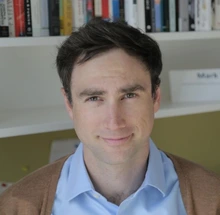
Mark Kear is an associate professor in the School of Geography, Development and Environment whose research focuses on economic geography and explores an academic understanding of inequality and housing precarity while delivering real-world impact in vulnerable communities.
Since the beginning of 2023, Kear has secured over $500,000 in external research funding from the U.S. Department of Energy and the Department of Housing and Urban Development to support his research. One major facet of his work focuses on home thermal security — the ability of households to maintain safe temperatures in the face of extreme heat. Through a DOE-funded initiative and several seed and foundation grants, he has partnered with Tucson community organizations and mentored both undergraduate and graduate students to investigate how extreme heat disproportionately affects residents in mobile and manufactured homes.
Kear’s research also examines predatory housing finance practices that impact Hispanic households. As the lead on the “Financing Resilient Housing” component of a $3 million HUD-funded ARCHES grant, he is studying how discriminatory lending patterns in Arizona’s manufactured housing markets intersect with credit scarcity and climate vulnerability. Kear’s work contributed to the passage of Arizona House Bill (HB 2246) to protect mobile home residents’ cooling rights and helped secure $11.5 million in federal HUD funding for Tucson’s manufactured housing communities.
In their nomination letter, Greg Barron-Gafford, professor, and Stefano Bloch, associate professor — both in the School of Geography, Development and Environment — highlighted Kear’s collaborative approach, impactful research, and dedication to improving lives in the community.
“Dr. Kear manages to stand out for his selflessness as a mentor and advisor, as a dedicated undergraduate instructor, and moreover as a researcher whose work is breaking new ground in the discipline,” wrote Barron-Gafford and Bloch. “Perhaps most importantly, he is positively impacting the everyday spaces of the Tucson and broader communities facing housing precarity and heat vulnerability.”
Samantha Simon, Assistant Professor, Government and Public Policy

Samantha Simon, an assistant professor in the School of Government and Public Policy, researches violence, gender, race, and organizational inequality. Specifically, she uses ethnographic methods to examine how gender and race shape U.S. policing, exploring how organizational training in state-sanctioned violence is itself gendered and racialized.
Since joining the University of Arizona, Simon has published several articles, including in Gender & Society, and her work on police cadet training earned third place for the Gene Carte Paper Award. In an article published in Law & Society Review, Simon and her co-authors examined the differing racial perspectives that police officers and Black women civilians hold regarding the impact of demographic diversity on policing. Her 2024 book, Before the Badge: How Academy Training Shapes Police Violence, draws on over 600 hours of ethnographic fieldwork at four large police departments to examine how new officers are trained and selected for police work.
Simon has also secured Presidential Grant funding from the Russell Sage Foundation and a Leveraging Grant from the College of Social and Behavioral Sciences. Simon is also a Fulbright U.S. Scholar Program semi-finalist and has received prior funding from the National Science Foundation and the American Association for University Women.
Regarding her dedication to her research, Simon wrote, “One of my primary professional goals is to conduct impactful research. I am motivated by questions that offer the potential to create a more peaceful and just world and strive to continue contributing knowledge toward these aims.”
Distinguished Faculty Outreach Award
This award recognizes sustained faculty outreach with a significant record of providing outreach in communities on the University of Arizona campus, the College of Social and Behavioral Sciences, and/or other communities—in the state, region, country, or outside of the U.S.—and/or a significant amount of work in community, public, private, or nonprofit sectors, domestically or internationally, that offers partnerships, support, or innovation through working toward improving conditions in communities or societies.
Brian Mayer, Professor, School of Sociology
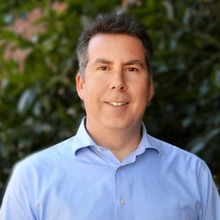
Brian Mayer is a professor in the School of Sociology whose research focuses on how environmental health risks are created and the debates that arise around these issues in science, policy, and medicine. His work looks at how community activism and involvement help identify and address environmental health risks.
Mayer’s projects demonstrate his dedication to sustained, innovative community outreach. In 2011, he co-led the NIEHS-funded Healthy Gulf, Healthy Communities center, studying the long-term impacts of the 2010 BP Oil Spill. As lead social scientist, he built community partnerships to examine health and economic effects. In 2018, the project earned the W.K. Kellogg Foundation Community Engagement Scholarship Award for outstanding community-university collaboration.
At the University of Arizona, Mayer co-founded the NIEHS-funded Center for Indigenous Environmental Health Research, focusing on risks in the Navajo and Hopi nations. He co-led community engagement and directed the Hopi sub-project, partnering with local groups to address coal and wood heating risks through workshops, outreach, and a "Healthy Home Heating Guide."
Mayer is perhaps best known for his work with the Tucson Poverty Project (TPP), which he launched in 2014 in response to Tucson’s high poverty rate and of which he currently serves as director. Since its inception, the TPP has surveyed around 300 households annually, documenting the challenges faced by low-income families in Southern Arizona. This research has resulted in three white papers. TPP findings are regularly shared with the community through action forums, partnerships with organizations like Habitat for Humanity, and the Making Action Possible for Southern Arizona project.
“Dr. Mayer has engaged deeply in a broad array of community outreach, much of it interwoven with his individual research program and his award-winning undergraduate teaching,” wrote Erin Leahey, director of the School of Sociology. “I am wholly impressed with his longstanding commitment to moving his research and teaching beyond the academy, and his successes therein that benefit so many.”
Elizabeth Oglesby, Associate Professor, Geography, Development, and Environment and Latin American Studies

Elizabeth Oglesby, an associate professor with joint appointments in Latin American Studies and the School of Geography, Development and Environment, is a scholar whose areas of expertise include human rights, forced displacement and migration, international development, and justice and memory, particularly in Central America.
Oglesby has served as an expert witness in high-profile human rights cases, including the Guatemalan genocide trials, where her testimony played a key role in the 2013 conviction of General Efraín Ríos Montt. She has supported national human rights initiatives, including collaborating with the ACLU on the legal challenge to the U.S. "safe-third country" asylum policy. Her international outreach also includes contributions to the Colombian Truth Commission and peace process discussions in Turkey.
Oglesby has made lasting impacts on both her students and the broader community through collaborative outreach initiatives. In 2005, she established a Guatemala study abroad program that has engaged nearly 500 students. Her collaborations with Indigenous universities in Central America, supported by a U of A Accelerator Fellowship, have fostered joint research on migration and cross-cultural ties. Over the years, she has organized outreach events through the Center for Latin American Studies and helped secure a $200,000 grant to advance Central American and Mayan language studies at the U of A. She also created 24 internships at Tucson’s Casa Alitas migrant shelter.
Oglesby has written op-eds and conducted media interviews for outlets like The New York Times, Washington Post, NBC, NPR, and The Guardian. She contributed articles to The Hill and The Nation, focusing on Central American migration and U.S. policies. In 2018, she was appointed media spokesperson for the Latin American Studies Association on U.S. border issues. Oglesby is co-editor of The Guatemala Reader, part of the prestigious Duke University Press series in Latin American Studies. She also co-edited a special double issue on Guatemala of The Journal of Genocide Research, and she is a former Carnegie fellow publishing on Truth Commissions and the politics of reconciliation.
In their nomination letter, David Pietz, director of the School of Global Studies, and Marcela Vásquez-León, director of the Center for Latin American Studies, wrote of the far-reaching impact of Oglesby’s teaching and outreach.
“Elizabeth Oglesby's courage and commitment to collaborate has made a tangible impact in so many spheres, from the international to the local,” they noted. “She has created highly effective synergies among her research expertise and her teaching and outreach activities, and those activities have touched many lives.”
Teaching Innovation Award
This award acknowledges an individual (or group) who has successfully implemented an effective innovation that provides students with exceptional learning experiences that are above and beyond what is expected in a traditional curriculum (e.g., experiential, service-learning experience, etc., that integrates global learning objectives and the environment).
Monica Chadha, Associate Professor, School of Journalism
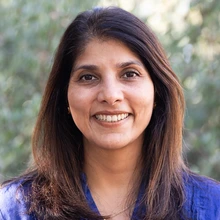
Monica Chadha, an associate professor in the School of Journalism, has created a unique Studies for Global Media class, Media Entrepreneurship and Revenue Sustainability, with the goal of providing journalism students an opportunity to learn about entrepreneurship as a possible future avenue for creating employment for themselves after graduation. The course sets aside traditional ways of understanding and teaching journalism and introduces students to media entrepreneurship and media education in a context of new approaches for income sustainability in the field they are passionate about, and to continue reporting the news to communities in the U.S. considered “news deserts.”
Chadha designed the forward-thinking class to incorporate a business and entrepreneurial focus, journalistic reporting and multimedia skills. Students are required to find a media entrepreneur and interview them for a podcast, ultimately learning relevant information about the individual’s entrepreneurial journey.
After developing an original idea for a media venture, along with a business model and revenue plan, students are asked to concept-test the idea by discussing it with a group of people they identify as their target audience or market. The proof is in what students have gained after completing these tasks after graduation: One student landed a job, others launched or planned ventures like a bilingual news site, a religious game app, and a literary magazine in Peru — while learning what audiences want from media.
In describing the idea behind the course creation, Chadha hoped to address one of the biggest issues facing journalism today, which is the loss of revenue to financially sustain any news media outlet.
“The revenue puzzle has been the hardest to solve,” Chadha said. “Any successful venture must have a good revenue model and as money for news media dries up, it is imperative for students to learn how to read the market and think innovatively about all the different ways in which they can earn revenue to bring about financial stability to a media venture.”
Scholar of the Year Award
This award acknowledges faculty in SBS who have been especially productive in their research, academic, and/or creative endeavors. This should be for a number of scholarly or creative accomplishments, including, outstanding scholarly, academic, or creative endeavors (e.g., publications in top journals in the field; book awards, juried exhibition in widely recognized venue; major externally funded grant).
Samara Klar, Professor, School of Government and Public Policy

“Samara Klar is one of the top political psychologists in the United States,” wrote Alex Braithwaite, director of the School of Government and Public Policy. “She engages in cutting-edge research on timely topics, such as partisanship and identity, and how both shape political behavior.”
Since earning her Ph.D. eleven years ago, Klar, a professor in the School of Government and Public Policy, has built a remarkable publication record—over 30 peer-reviewed articles, two books, and eight book chapters—amassing more than 4,700 citations, with over 1,000 per year in recent years. Her work remained especially impactful in 2024 and now, in 2025, is marked by the publication of her second book, Partisan Hostility and American Democracy, which explores how polarization influences policy views.
In addition to her extensive scholarly output, Klar is deeply committed to student mentorship and collaboration — consistently supporting them not only in the classroom but also through meaningful involvement in her research. Many of these collaborations have led to co-authored publications—seven with graduate students and two with undergraduates to date. Most recently, she co-authored a forthcoming article with Dr. Rongbo Jin, who completed his Ph.D. under her guidance. In that piece, co-written with two ASU scholars, they examine the emergence of cross-cutting social and political ties within U.S. Latino communities, showing how such connections can help guard against affective polarization and political distrust.
Klar has also established a regular and impactful presence in the media. She has appeared on national TV news in Australia, France, Belgium, Canada, Japan and is regularly sought out for analysis and commentary for local, state, and national news outlets, including The New York Times, CNN, and the Washington Post. She served as a recurring contributor on Bloomberg News and S.E. Cupp’s show, “Battleground.” In his nomination letter, Braithwaite noted that Judy Woodruff of PBS NewsHour flew to campus to interview Klar for an episode of the show.
“Samara Klar is a research superstar,” wrote Braithwaite. “She is quickly establishing herself as one of the nation’s most influential scholars of the causes and consequences of affective polarization.”
Outstanding Service Award
This award acknowledges outstanding and distinguished contributions by a faculty member to the College of Social and Behavioral Sciences and the home unit.
Jeff Banister, Associate Research Social Scientist, Southwest Center
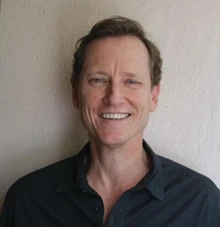
Jeff Banister is the former director and an associate research social scientist at the Southwest Center (SWC) in the School of Global Studies, as well as the editor-in-chief of the Journal of the Southwest—roles he assumed during a time of unexpected transition. Since then, he has steadily reshaped the SWC into a more collaborative, outward facing hub for scholarship, teaching and public engagement, centered around the U.S.-Mexico borderlands and greater Southwest.
“As director, Dr. Banister daily goes above and beyond the ‘mere’ job description to support and cultivate faculty research, teaching, and outreach,” wrote Jennifer Jenkins, director of the Southwest Center and professor in the Department of English.
Banister guided the SWC through its first-ever academic program review in 2019, using it as an opportunity to rethink and expand the Center’s mission. Under his editorial leadership, the Journal of the Southwest has transitioned to an all-digital format and seen a 30% increase in readership. Over the past six years, he has produced 24 issues of the Journal and overseen the publication of 15 books in the Southwest Center Book Series, averaging 2–3 peer-reviewed volumes per year.
Banister’s commitment to public scholarship is reflected in his outreach efforts. He co-launched the “Journal of the Southwest Radio Hour”— a podcast with nearly 9,000 plays in 16 countries and organized a wide range of programs including four NEH-funded teacher workshops, virtual lecture series during the pandemic, and more than a dozen field-based learning experiences that span the Arizona-Sonora border. His efforts have engaged hundreds of community members, K–12 educators, and lifelong learners. Beyond the SWC, he serves on multiple committees and external advisory boards and is often sought out for his thoughtful approach and collaborative spirit.
“Colleagues across the university know him to be forthright and conscientious and seek out his service when the issue is of consequence,” Jenkins said. “His service to the unit, the College, the University, and knowledge and heritage communities in the Arizona-Sonora borderlands is exemplary, and worthy of the recognition this award represents.”
Outstanding Public Scholar Award
This award recognizes faculty in areas of multiple types of public scholarship that include traditional outreach and also publicly facing scholarship and/or work that is more deeply collaborative with non-university groups or communities. The work is an integral part of the faculty member’s scholarly work.
Keith Bentele, Associate Research Professor, Southwest Institute for Research on Women
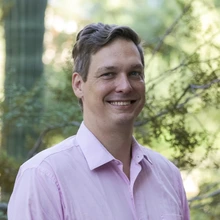
Keith Bentele, an associate research professor in the Southwest Institute for Research on Women, has made a transformative impact on both a local and national level. His contributions, particularly in the areas of homelessness, housing insecurity, and opioid use disorder, have shaped public policy, improved lives, and influenced policy.
Bentele was the lead researcher on the U-MATTER Project and Tucson Police Department’s Deflection Program, an initiative that redirected individuals with substance misuse issues from arrest to treatment — reducing arrests, improving access to healthcare, and lowering the risk of fatal drug overdoses, shifting police responses to substance use and mental health issues both locally and nationally.
Locally, Tucson and Pima County have benefitted from Bentele’s homelessness research. In 2020, he co-authored Forecasting Homelessness in Arizona During the COVID-19 Crisis, influencing local policy, joining Pima County’s Eviction and Homelessness Prevention Task Force, and securing nearly $1 million from the Garcia Family Foundation to improve homelessness and housing insecurity measurement. That same year, recognizing the lack of accessible data, he began publishing his Housing Insecurity Indicators & Potential Homelessness Estimates for Arizona and Pima County reports, which he updates and shares with local governments, service providers, and law enforcement.
Bentele’s deep community engagement includes joining the Tucson Pima Collaboration to End Homelessness (TPCH) System Performance & Evaluation committee in 2022 to provide data support. He also co-founded the Tucson Alliance for Housing Justice and developed housing policies for the Prosperity Initiative, resulting in local policy changes to combat poverty and improve housing stability. He has published multiple research reports on opioid use disorder, harm reduction, and housing gaps analysis, and his work has garnered media attention, contributing to national discussions on homelessness policies and substance misuse.
“Keith Bentele not only exemplifies public scholarship, but scholarship that is truly collaborative,” wrote Jo Korchmaros, director of the Southwest Institute for Research on Women. “His scholarship advances research-informed community-based work and is focused on addressing the most pressing challenges impacting our community with immediate and long-lasting positive impact.”
Jason Jurjevich, Assistant Professor, School of Geography, Development and Environment

“Dr. Jurjevich’s community-centered research in urban and population geography has had a profound impact on the state of Arizona and beyond, including leading directly to a change in state law to address historical patterns of residential inequity,” wrote associate professors Stefano Bloch and Elizabeth Oglesby, in the School of Geography, Development and Environment. “Rarely have we seen such a direct and powerful connection between engaged research and its public impact.”
Jason Jurjevich, an assistant professor in the School of Geography, Development and Environment, is an urban and population geographer whose research employs quantitative analysis for identifying and understanding the intersection of people and place, centering on the implications of demographic change from a socioeconomic, spatial, and political perspective.
Jurjevich’s ongoing research includes projects on housing inequality, plumbing poverty, critical census analysis, and municipal elections and democratic governance, but one of his most influential projects is the Mapping Racist Covenants (MRC) project, which began in Tucson in 2022. Using racist covenants in Tucson neighborhoods enacted between 1912-1968 as a starting point, the MRC shines a light on how racist covenants are part of a larger set of institutional housing restrictions that have, and continue to, affect communities of color.
The MRC project has had a significant impact locally and nationally. It directly informed Arizona's bipartisan law (SB 1432), signed in March 2024, which helps remove racist language from homeowners' covenants. The data also empowered communities, such as Sugar Hill, to address historical housing injustice, leading to the renaming of Mansfield Park in honor of Doris J. Thompson. The project is backed by key community partners and has received recognition from Tucson Mayor Regina Romero for its community-centered research, along with widespread media coverage.
An active mentor to students and teacher who seeks out opportunities to engage students and material, Jurjevich has also secured more than $2 million in external research funding since joining the U of A faculty in 2010.
“Dr. Jurjevich’s rigorous, engaged, and influential scholarship exemplifies what many of us strive for,” wrote Bloch and Oglesby. “Public scholarship is a vocation for him, and we are humbled and inspired by his dedication to supporting equitable communities through scholarship, teaching, and public engagement.”
Outstanding Mentor Award
Mentoring is a critical aspect of work in the academy and this award recognizes dedicated faculty whose work with others embodies transformational mentoring. This award honors faculty who are extraordinary in mentoring any, some, or all of the following members of our community: peers, early career scholars, future scholars, undergraduate and/or graduate students.
Adriana Zuniga-Teran, Associate Professor, School of Geography, Development and Environment
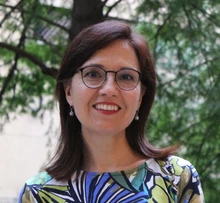
Adriana Zuniga-Teran — an associate professor in the School of Geography, Development, and Environment with a joint appointment at the Udall Center for Studies in Public Policy — has made considerable contributions as a mentor, guiding undergraduate and graduate students, and post-doctoral researchers in the school, college and across the university. Zuniga-Teran’s approach is inclusive — supporting students and junior researchers in meeting their full potential by recognizing their unique needs, ways of learning and personal life goals.
Citing Zuniga’s 53 peer-reviewed publications—21 of which include students as co-authors—Andrea Gerlak, professor in the School of Geography, Development, and Environment and director of the Udall Center for Studies in Public Policy, described Zuniga’s consistent integration of students into her projects as “truly exceptional.”
Zuniga-Teran's mentees agree.
“Dr. Adriana Zuniga is an outstanding mentor. She has provided clear and pragmatic guidance while encouraging me to develop independent thinking,” wrote Ivan Gaxiola, a PhD student and mentee. “Her mentorship has supported my growth as a researcher, helping me build networks, working in research teams, looking for funding, and more essential research skills. She is a trustworthy and professional academic who understands the challenges of pursuing a doctorate degree.”
Zuniga’s mentorship stands out for its depth, innovation, and reach. She has guided a wide range of mentees—from middle school students to postdoctoral researchers—often through creative, community-based models that go beyond traditional one-on-one advising. Her work includes mentoring large student cohorts through an intergenerational youth-mentoring model, leading an international student exchange with the University of Sonora, and directing an NSF-funded project that supports a postdoc, one graduate student, and two undergraduates conducting a literature review that will lead to publication. This project builds on Zuniga’s expertise in community engagement and green infrastructure research.
Alumna Catherine Broski, a former Mo’s Policy Scholar and participant in the STEM mentoring project, credits her mentorship experience with shaping both her professional values and career path.
“Adriana Zuniga was my mentor through the Mo's Policy Scholars program, but more than that, she is my role model and the 'dream job' I aspire to,” wrote Broski. “She has taught me how to problem solve from every angle to ensure that the interests of historically marginalized communities are centered. I now work as a regional planner, and Dr. Zuniga instilled in me the importance of always using my position to advance equity and environmental justice.”
International Research Award
This award acknowledges the efforts required to conduct research in countries outside of the U.S. Nominees will have conducted fieldwork or worked with partners or graduate students in the field for a month or more outside of the U.S. and published that work in multiple academic venues.
Beth Plummer, Professor, Department of History

Beth Plummer, a professor in the Department of History, is an international and award-winning research scholar with projects based both in the United States and in Europe. Her research focuses on Renaissance and Reformation Europe, digital humanities, and the history of gender, sexuality, and family, and includes an award-winning monograph, "Stripping the Veil: Convent Reform, Protestant Nuns, and Female Devotional Life in Sixteenth-Century Germany," which was the recipient of the Hans Rosenberg Book Prize and Central European History Society.
Since joining the faculty in 2017, Plummer has conducted extensive research in archives across Germany, France, and Austria—an essential aspect of historical scholarship, which can be challenging to access, particularly as a foreign scholar. The depth of her archival work is reflected in the detailed footnotes and comprehensive bibliographies of her many published works. Owing to her cultural sensitivity, linguistic skills, and professional networks, she maintains longstanding affiliations with prestigious German research institutes, such as the Herzog August Bibliothek and the Leibnitz-Institut für europäische Geschichte.
Most recently, Plummer has held a leading role in international, interdisciplinary digital research projects. Notably, she is co-principal investigator on an NEH-funded digital project, “Shared Churches in Early Modern Europe,” which brings together scholars from multiple countries and explores how different Christian groups coexisted, with a particular focus on women’s experiences.
Plummer’s work is timely and relevant, addressing issues of religious diversity and tolerance. Beyond her own scholarship, she is committed to expanding archival access and fostering international research opportunities for future historians.
In their joint letter, Beth Plummer’s nominators — Katherine Morrissey, head of the Department of History; and history faculty Benjamin Lawrance, Alison Futrell, and Ryan Kashanipour — wrote, “Beth Plummer's international research contributions are significant. She continues to forge partnerships of considerable value and to open access to archives for the next generation of scholars.”
Paul Schuler, Government and Public Policy

Paul Schuler — associate director for research and outreach and associate professor in the School of Government and Public Policy — specializes in comparative political behavior and institutions in single party, authoritarian regimes around the world.
In addition to his 2021 book, United Front, which examines the past and present functioning of the Vietnam National Assembly, Schuler’s research record includes 22 refereed journal articles — among them two in American Political Science Review (acceptance rate <5%) and one in The Journal of Politics. He has also published in top subfield journals like Comparative Politics and Comparative Political Studies. His work, largely field-based, has been cited over 1,600 times according to Google Scholar, underscoring its significant impact.
Schuler has spent over two years in East Asia building partnerships and researching authoritarian stability, gender equality in politics, and personality cults and nationalism. Alex Braithwaite, director of the School of Government and Public Policy, called this level of field experience “truly impressive.” Schuler's most recent work, “Gender and Clientelism: Do Expectations of Patronage Penalize Women Candidates in Legislative Elections?” uses both surveys and interviews, to highlight how gendered perceptions can disadvantage women in Vietnamese elections.
“Paul is a highly productive scholar whose research consistently draws upon field-based activities,” Braithwaite said. “He has established himself as someone to call to help implement large-scale studies in the field … he is clearly held in very high regard by his academic peers.”
High-Impact Practices Awards
The HIPs awards recognize faculty who create high-impact learning experiences that connect classroom knowledge to real-world challenges through innovative teaching, mentorship, and global engagement. In 2025, the College honors outstanding faculty in two categories: the Faculty Mentoring Award for Undergraduate Research, which celebrates exceptional guidance in student research, and the Faculty Innovation Award for High-Impact Practice, recognizing creative approaches to experiential learning such as capstones, service learning, or collaborative projects.
HIPs Faculty Mentoring Award: Undergraduate Research
Frank Gonzalez, Government and Public Policy

“In his eight years with us at the University of Arizona Frank Gonzalez has been a shining example of values we hold dear – compassion, integrity, and inclusion,” wrote Alex Braithwaite, director of the School of Government and Public Policy. “Nowhere is this better embodied than in his work with undergraduate and graduate students through his incredible Psychology of Inequality and Politics (PIP) Lab.”
Gonzalez is an associate professor and director of the Psychology of Inequality and Politics (PIP) Lab in the School of Government and Public Policy, whose research combines survey data with a range of experimental methods to explore how people think and make decisions. This includes tools like implicit association tests, cognitive and behavioral tasks, and even MRI brain imaging to assess brain activity during these tasks.
Gonzalez is the founder and director of the Psychology of Inequality and Politics Lab (PIP), which conducts research on a range of topics within the field of political psychology, with a focus on understanding the processes behind systems of hierarchy and inequality in society. Alongside a group of graduate and undergraduate research assistants, Gonzalez and his team research specific topics that include the impact of race and racism on political attitudes, class and wealth inequality, and political tolerance.
Unlike typical assistant roles, students in the PIP gain theoretical knowledge and practical skills by engaging in every stage of the research process. Graduate students take on leadership roles, managing teams of undergraduates while also running weekly workshops. Since its founding in 2018, the lab has grown from just four undergraduates to 26 active members today. Lab members have presented at major conferences like the Midwestern Political Science Association (MPSA), where their paper won the Best Paper on American Politics award — highlighting the lab’s commitment to student-led research and professional development.
“Frank Gonzalez is an extraordinarily generous and compassionate colleague and mentor,” wrote Braithwaite. “He consistently carries out high volume and high-quality mentorship that expands access to high impact practices for students across our programs.”
David Pietz, Regents Professor in the Department of History and Director, School of Global Studies

David Pietz — a Regents Professor in the Department of History, director of the School of Global Studies, and UNESCO Chair in environmental history — is a historian whose research focuses on the environmental and technological history of China, through a lens of water management. His extramural funding has included the Guggenheim Foundation, the Carnegie Foundation, National Science Foundation, the National Endowment for the Humanities, and the Mellon Foundation.
Pietz’s engagement in multifaceted student research-focused activities encompasses wide-ranging projects. His most recent initiative, Prospecting the Past: The Arizona Undergraduate History Research Symposium, aims to sustain undergraduate research by bringing together undergraduates who are engaged in historical research, to provide professional training, extend the reach of their work, and connect them with peers in a range of disciplines. In the first year of the program, 42 undergraduates representing seven colleges across campus, participated and applications for the upcoming year have doubled.
In their joint letter, Pietz’s nominators — Katherine Morrissey, head of the Department of History; and history faculty Susan Crane, Michelle Berry, and Tyina Steptoe — wrote, “The diverse participation is a direct result of Pietz’s vision, his commitment to analytical approaches to history, and his recognition that historical research takes place across the campus. He is the driving force behind the symposium project and the ‘special sauce’ for its dynamic success that ripples well beyond the event itself.”
The symposium includes workshop sessions to help students prepare their presentations and meet with other undergraduate researchers to foster the interdisciplinary intent of the project. A professional structure for the event includes a keynote speaker over dinner, an academic press exhibit and student panel presentations. Previous topics include the role of the U.S. government in the attempts and assassination of Fidel Castro, and Arabic-speaking Anglicans and the Jerusalem bishopric from 1947 to 1949.
Of Pietz’s drive to guide students to exceptional research and recognize the value of historical scholarship, his nominators wrote, “He promotes research and teaching activities at all levels — undergraduate, graduate, K-12, and public communities; as a mentor and faculty instructor he inspires others to appreciate the value of historical inquiry for facing contemporary challenges.”
HIPs Faculty Innovation Award: High Impact Practice
Janelle Lamoreaux, Associate Professor and Associate Director, School of Anthropology
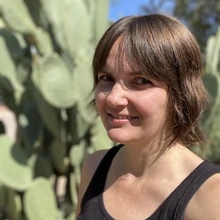
Janelle Lamoreaux — associate professor and associate director of the School of Anthropology, and founder and director of the Collaborative Anthropology for Reproduction and the Environment Lab (CARE) Lab — is a sociocultural anthropologist focused on reproduction, gender and environmental health, who combines the social studies of science with medical anthropology and environmental humanities.
Lamoreaux is the author of In/fertile Environments: Epigenetic Toxicology and the Reproductive Health of Chinese Men, which explores how scientists in China navigate the reproductive and political implications of environmental toxicity. She has published widely in journals such as Cultural Anthropology, Medical Anthropology Quarterly, and Environmental Humanities. Her current research explores the rise of sensory integration disorder and on global cryoconservation initiatives that rely on reproductive technologies to preserve biodiversity for future generations.
In the CARE Lab, Lamoreaux brings a collaborative anthropology approach to studying global trends in reproductive decision-making through the perspectives of young people in Tucson. She founded the lab to center the voices of young BIPOC students in the southwestern U.S. and to expand research on reproductive choices and climate change, both methodologically and theoretically. The lab engages undergraduates, graduate students, and faculty in designing and conducting qualitative, ethnographic research. Currently, the team is investigating why young people in Arizona are choosing not to have children amid growing ecological and political uncertainty.
Since fall 2023, Lamoreaux’s lab has engaged 12 undergraduates and two graduate students in all phases of research. In addition to learning to prepare academic posters and present their results at the SBSRI Faculty Seed Grant program and Vertically Integrated Project (VIP) poster sessions in spring 2024, the students have given academic presentations at professional conferences. Topics at the 2024 and 2025 Annual Meetings of the Society for Applied Anthropology included, “From Boomers to Doomers: Collaborative Anthropology of Reproductive Decision Making,” and “The World’s on Fire but We’re Still Having Kids: Collaborative Anthropology of Reproductive Reluctance in the U.S. Southwest."
“Dr. Lamoreaux makes significant contributions to U of A, SBS, and the School of Anthropology as an innovative and successful educator,” wrote Diane Austin, director of the School of Anthropology. “She finds ways to develop and sustain high-impact practices and reach underserved students, even under challenging circumstances. She has established the CARE Lab as a model for mentoring undergraduate and graduate students in research and guiding graduate students in how to be strong and effective mentors.”
##

